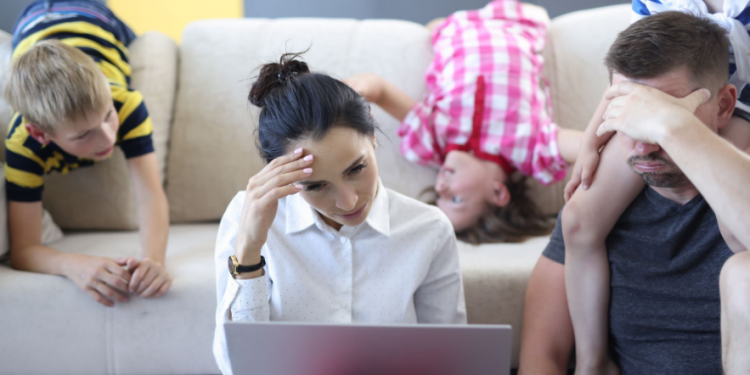By Ian Hebeisen
My mom first sustained her traumatic brain injury over seven years ago, leading to frequent fatigue. She’d come home from work and flop down into a chair, trying to regain enough energy to get through dinner. Our family struggled to understand at first – she’d been fine before, so the sudden bouts of fatigue took some adjusting.
“Fatigue isn’t the same thing as being tired,” said mom. “Tired means you need to rest and you’ll be recharged when you wake up. When you’re fatigued, even if you rest you don’t feel recharged.”
Mom experiences two kinds of fatigue: mental and physical. Her mental fatigue takes the form of migraines or pressure in her head, while she describes physical fatigue as a heavy, burning sensation that lingers in her arms and legs. “It literally makes it hard to pick up my leg to take the next step,” said mom.
Both forms of fatigue hindered her everyday activities, but the physical fatigue limited the amount of walking she could do in a day. Stairs would be a struggle, sometimes taking multiple minutes to ascend a flight of less than a dozen steps. In addition, her balance would waver when fatigue set in, so we’d offer up an arm when out walking.
To help reduce fatigue, a doctor recommended mom started walking with a cane. “It did help some,” said mom. “It prevented me from falling, and made me feel more stable. It reduced fatigue, but not much.” When going on longer walks or participating in more strenuous activities, my mom would end up using two canes or hiking poles to further increase her stability.
When mom’s physical therapist found out about the two-cane system, they both decided it was time for a gait evaluation. This type of testing analyzes a person’s posture, balance, and other factors while they walk. After the evaluation, mom’s physical therapist suggested trying out a walker.
Mom noticed an immediate difference, with a notable improvement in her gait. “I could walk straighter, my body wasn’t as twisted, and I could walk at a better pace,” said mom. In November of 2021, she got her own walker, and her physical fatigue greatly reduced.
My dad repeatedly commented on how the walker affected her mobility. “She started standing straighter, and her balance was better,” said dad. “Her body alignment is so much better because the walker is symmetrical. You know when people with a cane walk hunched over? With a cane, her body kind of adjusted to it, which caused misalignment. A walker helps her align so she can walk further, faster, and better.”
Mom noticed a slight stigma around the walker once she got it, particularly from doctors. “The thought process is if you put a person in a walker, the next step is a wheelchair,” said mom. “The fear is loss of mobility by putting them in a walking aide.” In actuality, my mom’s mobility improved. She can walk further than with the cane, tiring less quickly.
She also noticed people reacting in a sympathetic manner when they saw her with the walker. “One guy saw me and said ‘oh no, I’m so sorry!’ I just laughed and said, ‘it’s the best thing that’s happened’,” said mom.
Finding the right equipment can make all the difference. If your loved one struggles with physical fatigue, sit down and brainstorm ways to help them. Listen to their symptoms, taking note of particular ailing areas and what triggers them. Recording this can help your loved one find patterns, which they can take to a professional for assistance. In the meantime, find other ways to offer support – physically and emotionally. Something as simple as providing an arm to lean on or a shoulder to cry on can go a long way.
If you think a walker might be beneficial for you or a loved one, talk to a doctor or physical therapist before making a purchase. Once you get the go-ahead, try out a variety of walkers. They come in all shapes and sizes, and you need to be sure to find the one that works best for you.
Ian Hebeisen is a writer based in the Twin Cities. Graduating in 2020 with a degree in Literature with a Writing Emphasis, Ian spends his time writing for The Brain Health Magazine and JUVEN Press. He also writes comics, zines, short stories, and poetry. He lives with his partner and two cats, and enjoys playing board games and reading.




















